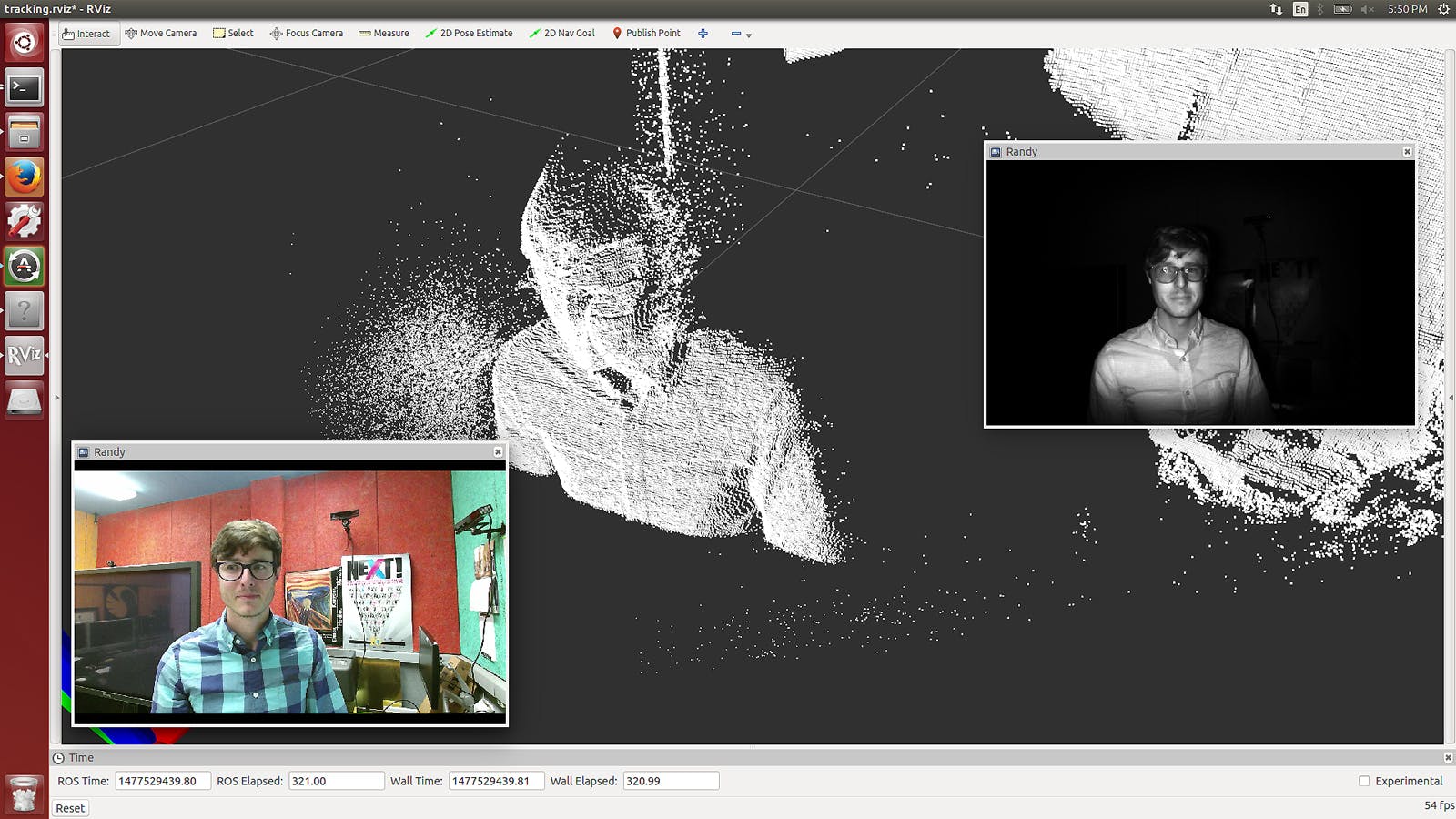As a visual artist, Randy Illum has worked with a variety of traditional and digital mediums. As a second-year doctoral student in UCLA’s Department of Information Studies, he will be further exploring the connections between art, technology, and collaboration. Illum has been awarded a CONNECT (Center for Research & Innovation In Elementary Schools) Fellowship to conduct research with UCLA Professor of Education Noel Enyedy on the use of tracking technologies in classes at UCLA Lab School for art-making and collaboration.
Illum, who previously worked with Enyedy on the “Science Through Technology-Enhanced Play” (STEP) Project at UCLA Lab School, has designed a study to assess art-making processes with two different groups of students who will respectively collaborate to paint using traditional interventions and markerless body-based tracking. The same body-based tracking was used in the STEP Project and allows students to embody an interactive, virtual environment through the OpenPTrack technology. OpenPTrack is an open-source scalable, multi-camera, computer vision tracking system that was designed for education and the arts at UCLA’s Center for Research in Engineering, Media and Performance (REMAP). Illum was a part of creating OpenPTrack from its inception.
Illum says that he is interested in understanding how the use of technology changes interaction between students as they learn to collaborate through the tracking system as part of their art-making process.
“I see a lot of technology is being put in classrooms without looking at how it is effective or looking at the various types of interactions and learning,” he says. “I see a divide in the way things are researched and the way things are deployed and I want to mesh the research and development at the same time.”
Illum, who earned his BFA at Rutgers University, worked in 3-D manufacturing and aerospace engineering before relocating to California, where he designed and programmed “smart” homes. He says that his experiences with visual art and engineering have allowed him to explore “how you can take protocols and existing technologies and simplify them to do things they weren’t intended to do initially.”
“Information studies is interested in protocols and infrastructure,” he says. “I worked with the military on aerospace engineering, thinking about logistics and deployment,” says Illum. “With home automation, I saw how you could take technology and simplify it to be used every day by people who aren’t necessarily technology- oriented.”
Illum continues to work at REMAP as a researcher on the OpenPTrack project and has participated in other REMAP projects including “Grace Plains” and the IMLab project with California State Parks. His position includes researching novel implementation and deployment of emerging technologies for use in storytelling and informal learning spaces. This past summer, Illum served as technical director for an interactive exhibit on Los Esteros del Ibera, a national park in northeast Argentina, supervising the audio-visual and interactive design and installation of the exhibit which is being currently shown at Tecnopolis in Buenos Aires.
Illum expresses his interest in informal learning environments such as museums, community centers, and other non-academic settings where information seeking and retrieval can be explored by communities that have historically not have had access to the technologies or education to interface with these structures.
“When you get a community involved, it’s about developing technologies for them, not forcing technologies on them,” he says. “It’s about looking at how we do things in research or in education and then taking it to development and deployment and collaborating with communities to allow for equitable access.”
Illum says that the new “digital divide” is not lack of some communities’ access to devices but rather their lack of digital literacy.
“I think there is misinformation and [not a lot of] guidance available,” he says. “There are [many] layers of information available, especially with global computing. Working at REMAP [got me] thinking about how can we use technologies to be more equitable and give opportunities to the greater society.”
To view Illum’s portfolio, click here.
Above: Self-portrait by Randy Illlum
